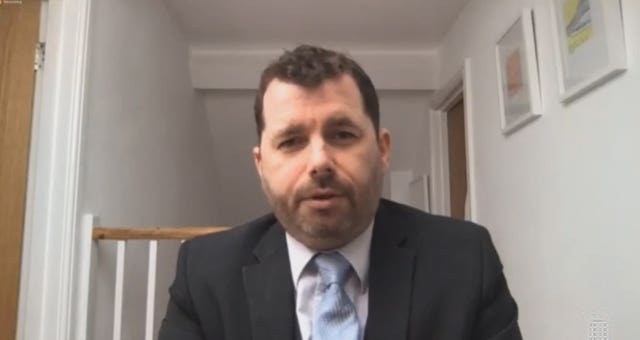Thousands of digital devices awaiting analysis by police investigators
The size of the backlog facing forces in England and Wales has not changed in the past year, figures suggest.

Police forces in England and Wales have thousands of digital devices waiting to be examined by investigators and the backlog has remained the same size for a year, figures suggest.
Data provided to the PA news agency under the Freedom of Information Act in February and March showed that a total of 12,122 devices including computers, tablets and phones were awaiting examination across 32 forces.
Those that were able to provide a time estimate for how long it would take to clear the backlog ranged anywhere between three months to more than a year.
Previous figures published by The Times in May last year showed that there were 12,667 devices awaiting analysis across 33 forces.
Simon Kempton, the technology lead for the Police Federation of England and Wales, said investigators are “overwhelmed” by the amount of digital evidence they must deal with.

“The fact the number of digital devices waiting to be analysed has not budged from last year shows how overwhelmed investigators are with the sheer volume of digital evidence,” he said.
“Forces are struggling to attract new detectives which is resulting in mounting workloads.
“There is also a need for forces to invest in technology which can help speed up this process by extracting and sorting this data automatically.”
He said that the backlog can lead to problems with disclosure, where key evidence is not passed to defence teams during criminal trials.
“Having the extracted data is one thing, but analysing possibly hundreds of pieces of potential evidence from just one device once you’ve obtained it is quite another, taking a huge amount of time and skill – so we not only need to bring the number of detectives back up, but we also need to enhance their digital forensics skills.
“The biggest issue with having a backlog of devices is it resulting in disclosure issues, with potentially vital pieces of evidence not making it to court in time.”

The disclosure process came under sharp focus from the end of 2017 after a string of defendants including student Liam Allan, who was accused of rape, had charges against them dropped when critical material was discovered at the last minute.
The latest figures provided to PA show the devices are linked to a wide variety of crimes, including possessing indecent images of children, violent crimes, sexual offences, fraud, drug crime, burglary and robbery.
Some will be linked to terrorism investigations, although forces were unable to release information about these.
Forces triage requests so that the most serious crimes are dealt with first.
Those able to provide an estimate of how long it would take to clear the current backlog gave figures ranging from around three months to more than a year.
The Metropolitan Police estimated that 60% of its exhibits would be examined within three months; 39% would take three to 12 months; and 1% would take more than 12 months.
Mr Kempton said the 43 forces in England and Wales have different approaches, with some using the latest technology to download and analyse data and others not.
“There is a disparate approach across the 43 forces,” he said.
“The underlying key message is that forces need to be better at working in unison, even if retaining local autonomy is important to them.
“Reducing the number of forces might make procurement more streamlined as there would be fewer procurement agreements covering the organisation.
“This could be overcome quickly by mandating forces to work as regions and to adopt the same regional approach.”
In February forensic science regulator Dr Gillian Tully highlighted a national skills shortage in digital forensics, and claimed there was a “woeful level of compliance”.
She found one instance where software used to analyse mobile phone data identified the wrong recipient of deleted messages.
On April 1 a new Forensic Capability Network (FCN) was launched to create a more unified approach between police forces and boost standards in forensics.
National Police Chiefs’ Council lead for digital forensics Deputy Chief Constable Nick Baker said it would help reduce the size of the backlog.
Mr Baker said: “The majority of police investigations necessitate some investigation of digital devices, and the process of identifying reasonable lines of inquiry, extracting the relevant material from devices and reviewing it is time-consuming, so there will always be a pool of digital devices to be investigated.
“But with the launch of the FCN and ongoing efforts to identify smarter working practices, we aim to see a reduction in the number of devices to be investigated at any one time.”





